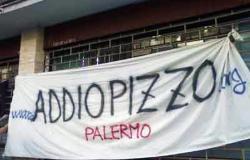They care for a relative who is not self-sufficient and in need of continuous assistance, due to illness, advanced age or a disability. It can be a spouse, a parent, a child, a brother, a sister. Family caregivers carry out a “work” of care, free and invisible, which ranges from support in daily activities to the management of therapies, up to the processing of bureaucratic procedures. As if that wasn’t enoughor physical and psychological stress linked to constant and daily commitment, sI’m often cforced to leave their job (or lose it) to be able to continue to assist their loved ones, in the face of a flawed welfare system. For years they have been asking for their right to rest and health to be recognized, as well as welfare, social security and insurance protection, as already happens in other European countries.
Urge institutions to accelerate the legal recognition of children’s rights family caregiver is among the objectives of the «Caregiver Bill of Rights» created on the initiative of 19 Associations and presented in Rome during the «Caregiver SumMeet 2024» event, organized by Cencora-Pharmalex, with the patronage of the Minister for Disabilities – Presidency of the Council of Ministers.
Needs and requests
The “Charter” summarizes the difficulties, needs and requests of family caregivers: it ranges fromworking environment to social aspects, from the protection of mental health to the need for tools to better assist their loved ones. To break down cultural and social barriers, the promoters of the Charter maintain, it is first and foremost essential to institutionally recognize the role of family caregivers so that the measures that protect them become truly concrete.
The Charter has so far been signed by 19 associations:
Alessandria Diabetics Association odv (affiliated with FAND-Italian Diabetics Association)
Italian Association of myasthenia and immuno-degenerative diseases – Amici del Besta
Italian Association of Narcoleptics and Hypersleepers
ANCA associated Italian vasculitis association
AMICa – Castleman Italian Sick Association
Aned – National Association of hemodialysis, dialysis and transplant patients
Apmarr – National Association of people with rheumatological and rare diseases
Carolina Zani Melanoma Foundation
Epac – Association of patients with hepatitis and liver diseases
Europe woman Italy – The European breast cancer coalition
Food allergy Italy
Italian Les Group (Systemic Lupus Erythematosus)
Project Ithaca (for mental health)
Longevitas Foundation
Melanoma Italy
Melanoma days
Palinuro Association – patients free from urothelial neoplasms
Let’s breathe together
Walce – Women against lung cancer in Europe.
Work and revision of the «104»
The contractual forms currently in force, explain the signatories of the «Charter», are not compatible with the role of caregiver, therefore a revision of the national collective agreements is necessary through the establishment of a «national working table that aims to raise awareness and legislative and contractual innovation (to support and protect the new figure of the caregiver)”.
The associations then ask for a revision of Law “104” of 1992 (for example, providing greater protection for the assisted person during the transition from pediatric to adult age) and in particular of art.3 paragraph 3 (serious disability), for example by increasing the days guaranteed for assistance.
The role of the caregiver must be recognized by employers to prevent any absences from being mistakenly associated with absenteeism.
Supplementary financial support must be provided for the caregiver, net of all expenses to be faced.
If the type of work allows it, smart working must be a valid and guaranteed option as corporate protection to support the caregiver, say the representatives of the Associations.
How many caregivers are there? What is the impact on their health?
According to the Associations that have signed the Charter, it would be useful to try to “map” the presence of caregivers in Italy. To date, in fact, it is not known exactly how many family caregivers there are in Italy today. It is estimated (Istat data) that there are 7.3 million Italians, aged 15 and over, who provide care or assistance, at least once a week, to relatives with problems due to aging, chronic diseases or disabilities.
For the signatories of the Charter, studies aimed at evaluating the impact of the patient’s pathology on the family caregiver would be needed and, furthermore, this figure should be included in the HTA (Health Technology Assessment) processes to measure the value of a health intervention, as well as contributing , in the monitoring phase, to evaluate the effects of new technologies developed in a specific therapeutic field.
Psychological support is necessary
The caregiver needs to carve out moments for their own psychophysical well-being. For this reason, according to the Associations that have signed the Charter, they should be able to take advantage of free services to meet some needs that require time and energy and which could be delegated to someone else.
And it is fundamental psychological support for the caregiver who assists a family member with a chronic pathology: it should be structured through psychological assistance paths that should be activated from the beginning.
Sharing experiences through the support of patient associations can also help reduce the sense of loneliness, so the caregiver should be informed of the existence of these realities.
Correct information
The caregiver, the Associations maintain, must be able to receive correct fundamental information for the correct management of the loved one’s pathology and support from health workers in the use of technologies and tools offered by the Health Service (for example exemptions, Adi-integrated home care , screening) present in the area. According to the signatories of the Charter, a periodic comparison between healthcare workers and caregivers would be useful, but also to define a continuous and already planned treatment path for the patient, as well as training for the emergency management of chronic pathologies and greater use of digital tools – such as telemedicine – which can support not only the patient but also the caregiver.
Waiting for the law
They have been presented in this and the past legislature various legislative proposals on family caregivers.
In a message sent to the organizers of the conference, the Minister for Disabilities Alessandra Locatelli reiterated that «the recognition of family caregivers, particularly cohabiting onesit is fundamental and it can no longer be postponed. The table that we set up with Minister Calderone in recent months – continues the minister – is working on a proposal that we will bring to the attention of Parliament with the aim of giving a regulatory framework to the role of the caregiver and adequate recognition for the cohabiting family caregiver. We need to adequately support the people who love and care for their loved ones and I am confident that we can get there soon give a concrete response that has been awaited by families for years» concluded Locatelli.





